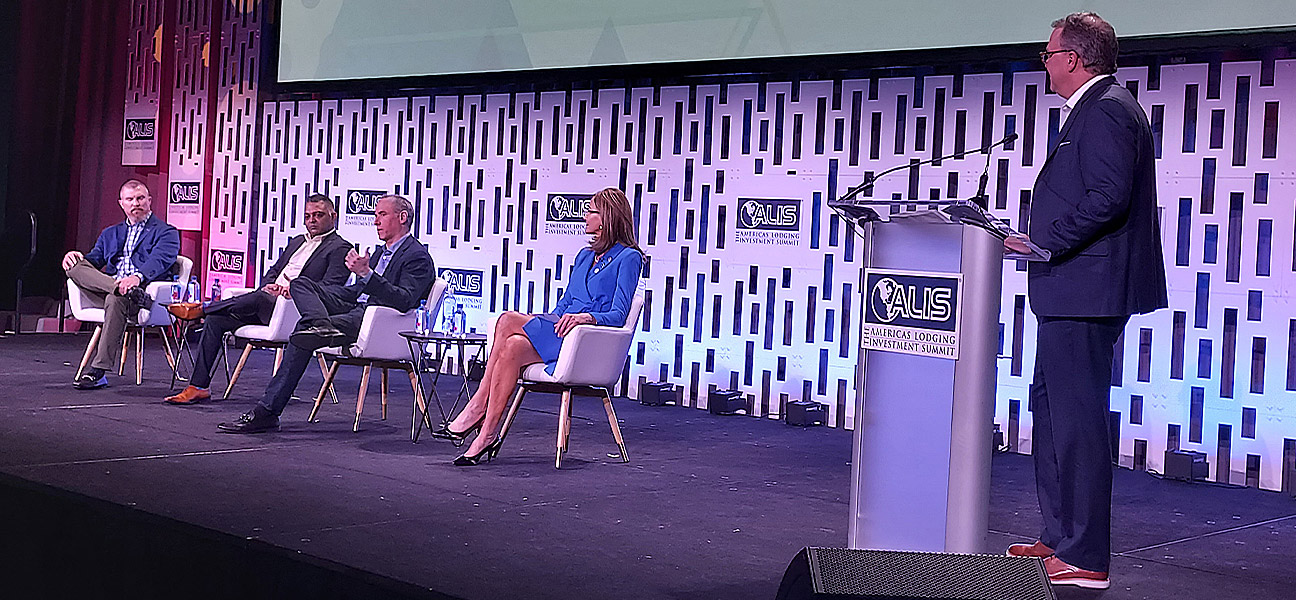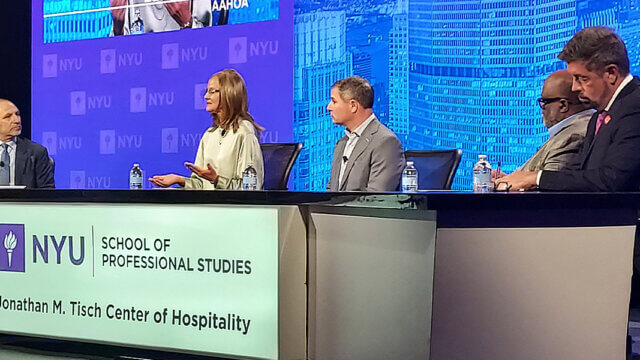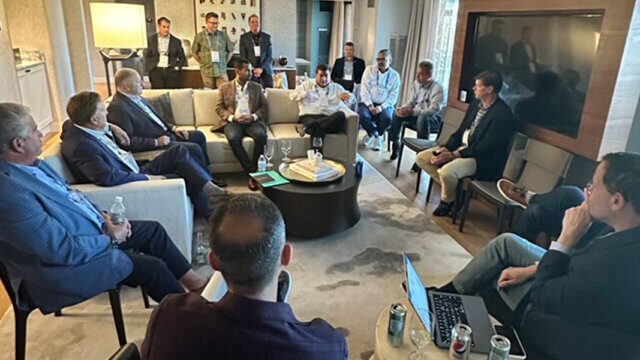While the 2023 edition of the Americas Lodging Investment Summit (ALIS), held at the JW Marriott/Ritz-Carlton Los Angeles L.A. Live was a site of mostly optimistic observations for the upcoming year, the issue of labor, which was troublesome before the pandemic, continues to be problematic.
During “Boardroom Outlook: People—Cultivating the Most Valuable Asset, moderator Bill Grice, president, CBRE Hotels, and panelists Laura Lee Blake, president/CEO, AAHOA; Greg Friedman, managing principal/CEO, Peachtree Hotel Group; Ken Patel, chairman, The EV Hotel; and Christopher Ropko, CEO, McNeill Investment Group, discussed the labor issue and the importance of diversity in the industry.
The panelists said that companies are looking for different ways to attract and keep workers.
Friedman said the ability to retain talent has been difficult with so many companies offering remote work. “Certain companies are doing a hybrid model, some are requiring everyone to be fully back, and others are fully remote,” he said. “It’s just a big disconnect that we are dealing with. All companies are facing that challenge and going through these issues.”
Patel said that his company is doing things differently than prior to the pandemic, especially relating to work schedules. “For us, we’re doing a four and three, where people work four days a week, 10 hours a day and they get Friday, Saturday and Sunday off,” he said. “But it is an experiment…We don’t know what works, but we’re going to probably give it a shot.”
AAHOA’s Blake cited statistics that unemployment is 3.5%—the lowest since 1969—with 11 million job openings and only 6 million unemployed workers. “That means that there’s clearly a problem there and in the hospitality industry, I think we’re at 1.4 million that are needed,” she said.
She pointed out the stunning number of women and minorities who have left the workforce after COVID. “Men on the one hand are up by 400,000 workers, but women in the workforce are down by 1 million,” she said. “That was quite surprising to me… So, what do we do to attract and retain the ones that we have and maybe invite the ones that stepped away from work during the pandemic—often to care for children, people with COVID or elderly parents. How do you start bringing them back? I think that is the key question, especially after seeing these numbers.”
Friedman said that the industry needs diversity. “You need these different backgrounds,” he noted. “Look at my company, we’ve got about 220 corporate employees and if everyone came from the same geography, the same type of background, there are a lot of blind spots. We would miss investment opportunities and better ways to operate or develop hotels. We would miss those opportunities because we wouldn’t see things from a different set of lenses. One thing that gets lost in these discussions is why it is so critical to have that diversity.”
His company has set up an internal program called Women Leading Peachtree to increase diversity and help them become engaged. “We have an organization internally that is set up to help mentor young females who join our company to allow them to continue to grow and develop,” Friedman said. “It is important to have those kind of programs to have that mentorship, development and training.”
McNeill’s Ropko agreed. “It doesn’t matter what the race, creed, religion and sexual orientation; none of that stuff matters,” he said. “We live in a world where it is all-inclusive. If you don’t get every perspective under the sun and bring it into the front line where you make your decisions and cultivate your leadership, that’s everything.”
He continued, “I grew up with a white man’s opinion my entire life—my dad. I want to see other opinions. I want to know what other people think. That is the world we live in. We have to cultivate that. We have to take that into consideration. You’re doing a disservice, not only to your people, [but] to your investors.”


